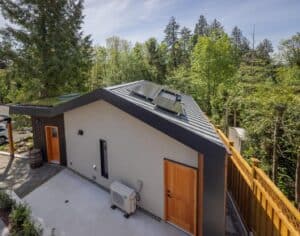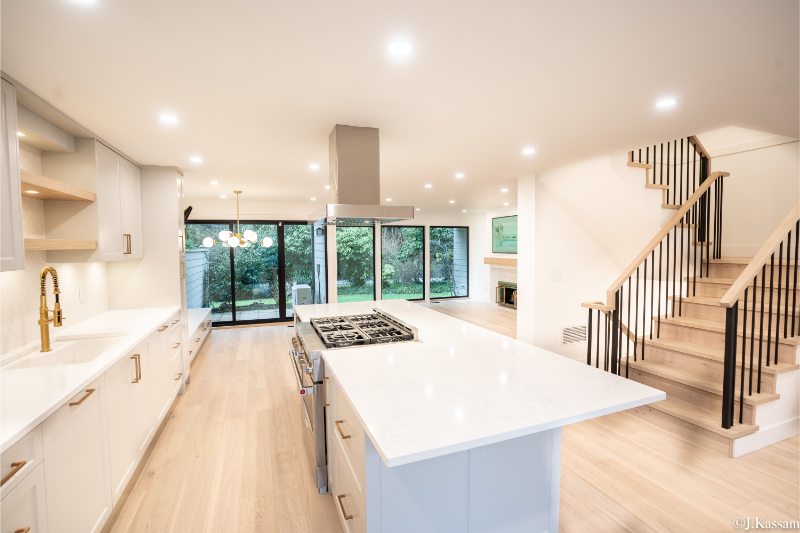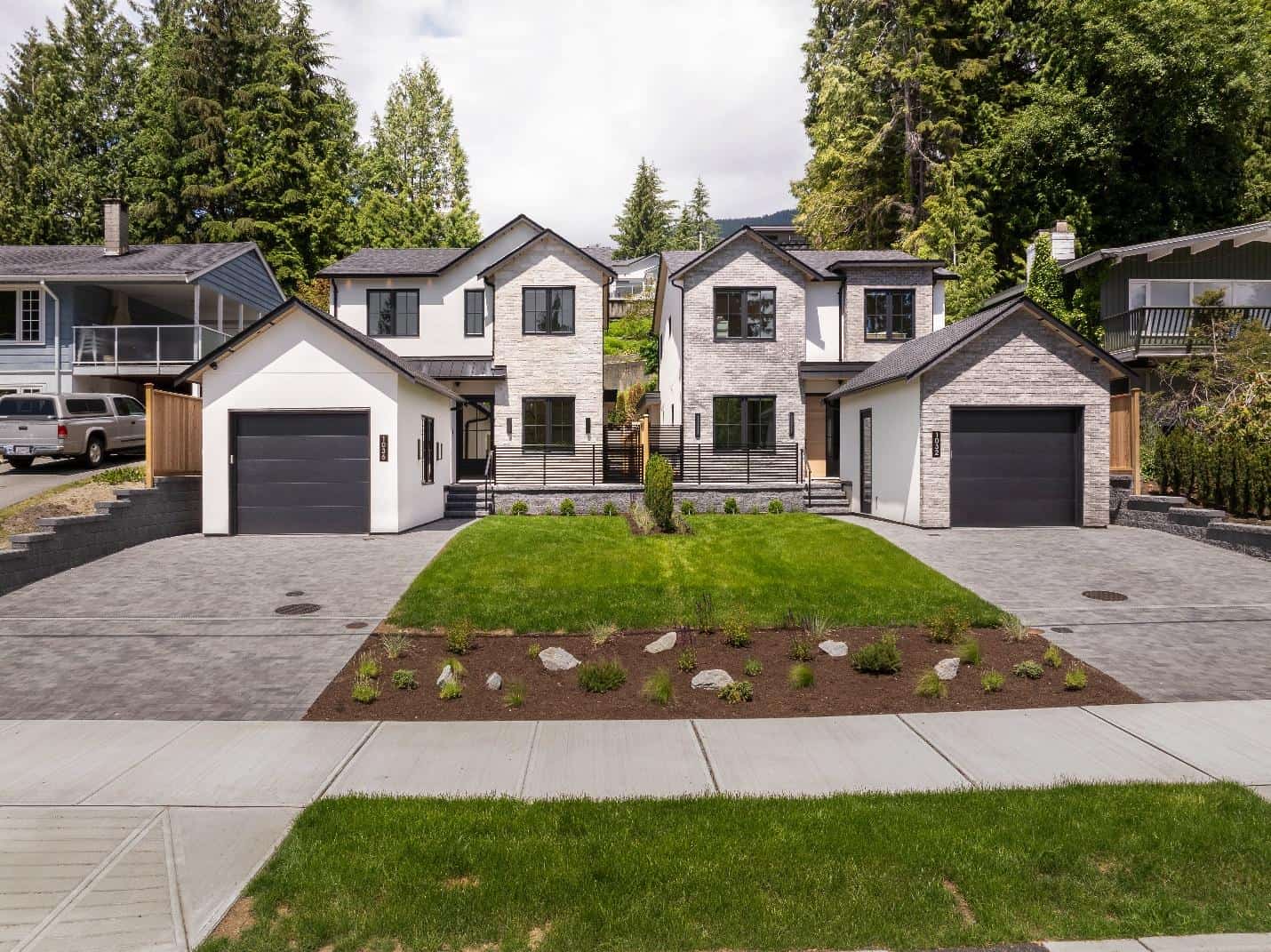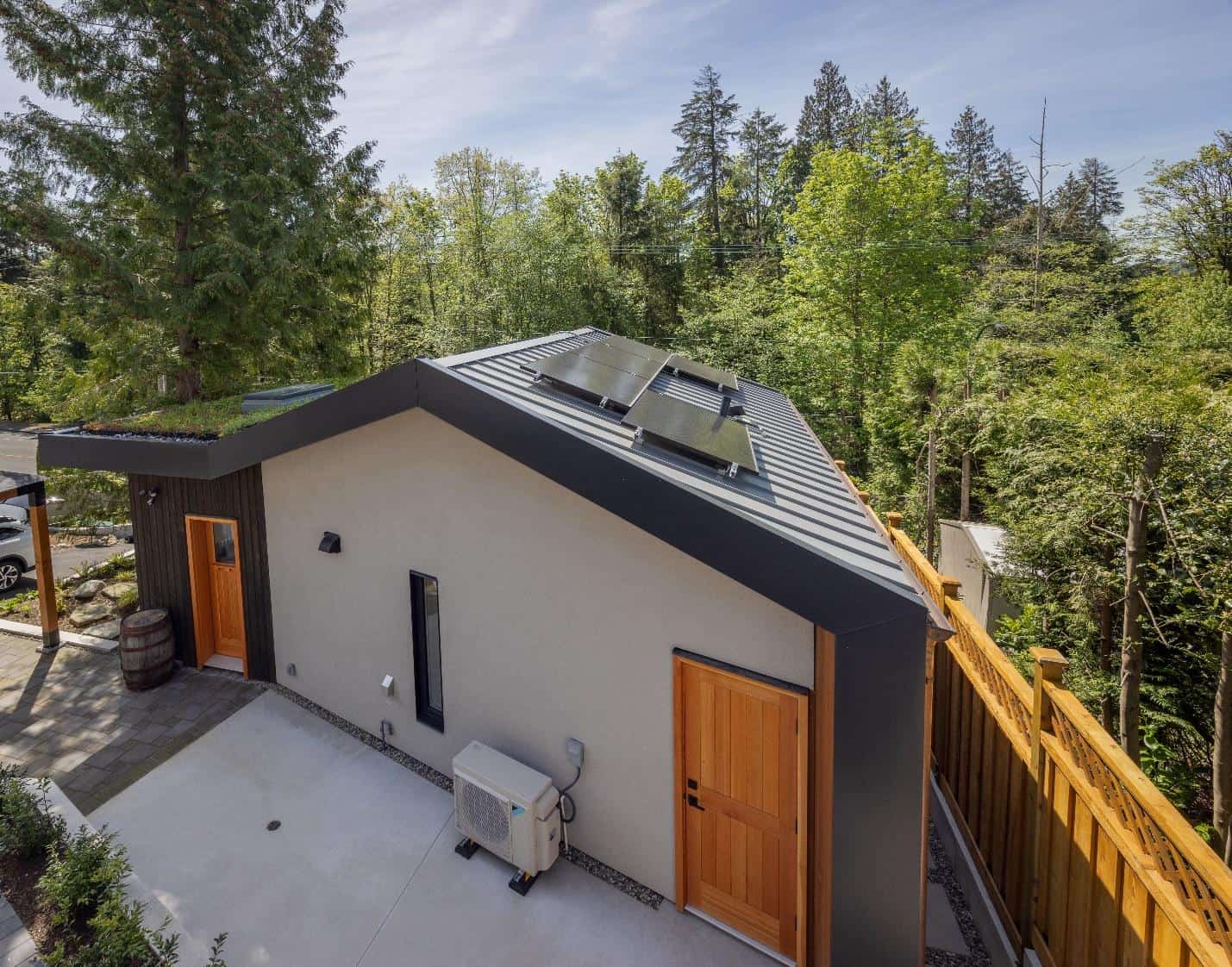If you’re tired of just barely scraping by when it comes to your energy bills, maybe it’s time to upgrade to a more energy-efficient home. Doing this can significantly reduce your carbon footprint and save you lots of money in the long run. The only question is: Where to start?
Thankfully, there are numerous ways to build an energy-efficient home, which this handy guide will focus on.
Contents
Factors that Impact Home Energy Efficiency
When you’re trying to make your home more energy efficient, factors like the building envelope, HVAC systems, and building practices all play a role.
By assessing these components, you can make an informed decision about how best to make your home energy efficient. Let’s break them down for you:
Building envelope
Your building envelope serves as a critical component between the exterior and interior of the building. It affects thermal performance, air tightness, daylighting, and insulation.
Proper design, like high-performance glazing, continuous air barriers, and effective insulation can reduce heat loss, improve indoor air quality, and enhance energy efficiency.
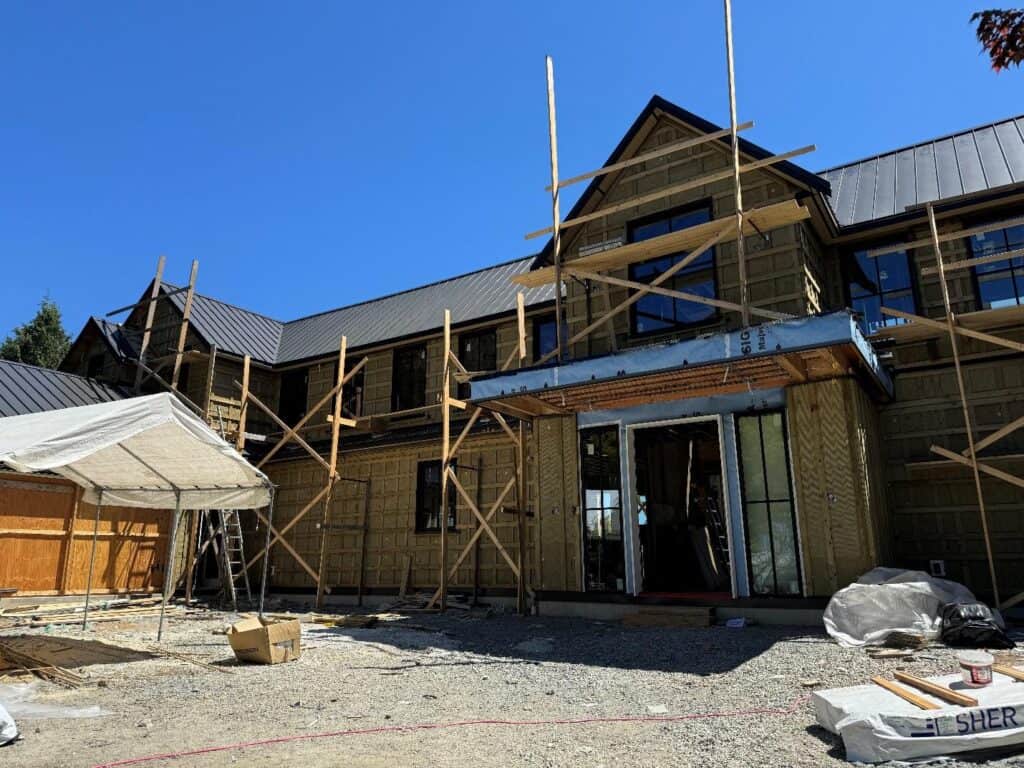
Figure 1 Exterior insulation installed at our Woodgreen Project In West Vancouver
HVAC systems
Having a high-quality HVAC system is vital for energy efficiency. Proper maintenance of your heating and cooling systems, as well as investing in smart thermostats, can help lower your energy bills.
Upgrading your system can also make a huge difference. Also, don’t overlook the importance of air sealing to prevent energy wastage. Do your research before investing in, and installing an HVAC system.
Appliances and lighting
When selecting appliances, opt for energy-efficient models that have Energy Star certification. Energy Star-certified appliances are specifically designed to consume less electricity, helping you save money on your utility bills. While these appliances tend to be a little costlier, just think of how much you’ll save over time!
Similarly, choosing energy-efficient lighting, like LED bulbs, can make a noticeable contribution to reducing your energy usage. These changes may seem super simple but they can be incredibly impactful over the long term.
Renewable energy systems
Beyond appliances and lighting, you can also look at renewable energy systems. If you can bear the brunt of the initial investment costs, integrating energy sources like solar panels into your energy-efficient construction can significantly reduce your reliance on traditional power grids.
The shift towards renewable energy can do a lot in terms of lowering your utility bills and minimizing your environmental footprint. Many homeowners nowadays aim for net zero homes and you should do the same. It’s basically a home that produces as much energy as it consumes.
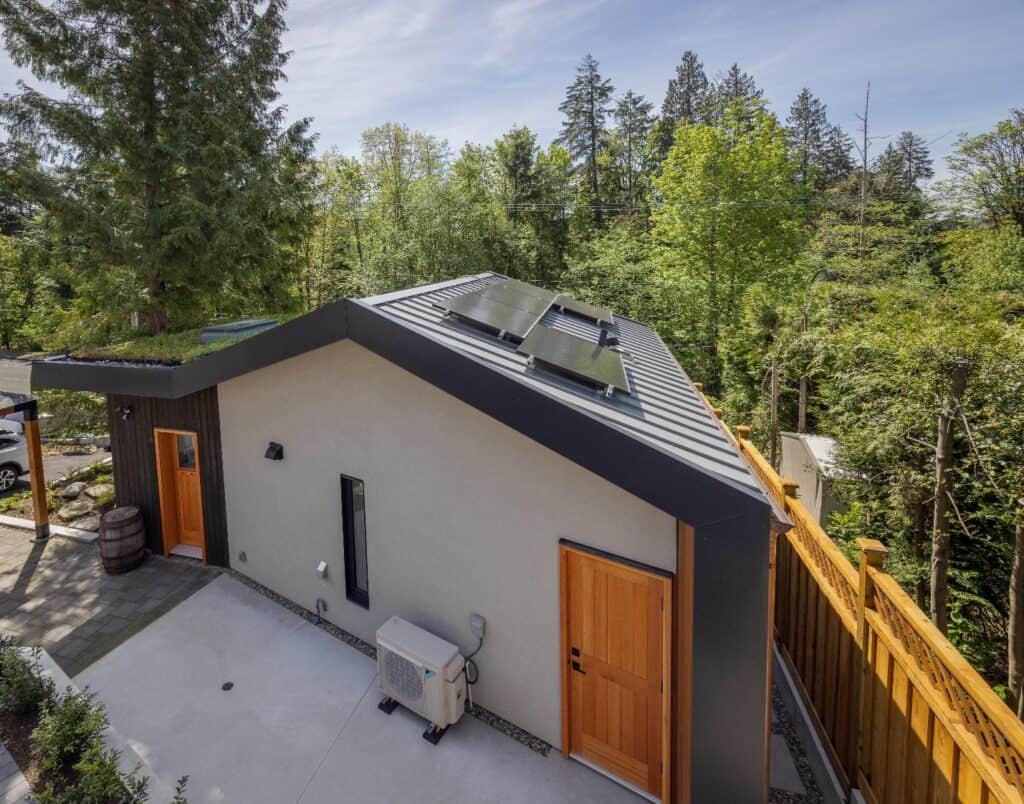
Figure 2 Solar Panels and Heat Pump Installed at our Dollarton project in North Vancouver
Building practices and techniques
This is an often overlooked component, so don’t make the same mistake. Implementing advanced building practices/techniques can also have a big part in how energy efficient your home can be. While you’re thinking about how to make your home more energy efficient, focus on the following key factors:
- Cool roofs: If you live in a hot area, consider installing cool roofs that reflect sunlight and reduce the amount of heat absorbed by your home.
- Heat loss reduction: Insulate walls, windows, and doors to prevent heat loss and improve overall energy efficiency.
- Strategic positioning: Properly orienting a house to capture sunlight and cooling breezes can reduce energy consumption by lowering the frequency of heating and cooling systems being used.
For example, for passive heating, orienting living areas and windows on north-facing walls in the southern hemisphere can help capture low winter sun.
Energy Rating Your Home
There are a number of ways for you to assess the energy efficiency of your home, but the most effective is by using the Vancouver BC Energy Step Code. It has a series of steps that each represents increasing levels of energy performance:
- Step 1: Buildings must meet the minimum requirements of the BC code.
- Step 2: Buildings must meet a performance level that’s 10% better than the code’s minimum requirements.
- Step 3: Buildings must meet a performance level that’s 20% better than the code’s minimum requirements.
- Step 4: Buildings must meet a performance level that’s 40% better than the code’s minimum requirements.
- Step 5: Buildings must meet a performance level that’s 80% better than the code’s minimum requirements.
The Future of Energy-Efficient Homes
Always do your best to stay on top of the latest trends in the energy market. Homebuyers are increasingly prioritizing energy-efficient homes because of growing awareness around living sustainably. Market trends reflect this shift, with rising demand for smart home technology and energy-efficient appliances increasing in price.
Also, because more homebuyers are looking to reduce their environmental impact and lower utility costs, builders/developers are adapting to meet these demands. They’re incorporating more energy-efficient design elements into new construction projects, shaping the future of homebuilding towards sustainability.
FAQs
What are the key benefits of building energy-efficient homes?
One of the main benefits of energy-efficient homes is lower energy bills. However, other key benefits include reduced environmental impact, improved comfort, and increased property value. They also play a huge part in contributing to sustainability and combating climate change.
How can homeowners save money by investing in energy-efficient homes?
Homeowners can save money in the long run through reduced energy bills, lower maintenance costs, and potential tax incentives. They can also benefit from increased resale value in the future. The initial costs might sting a little but remember that energy-efficient homes are more cost-effective over time because they use less energy.
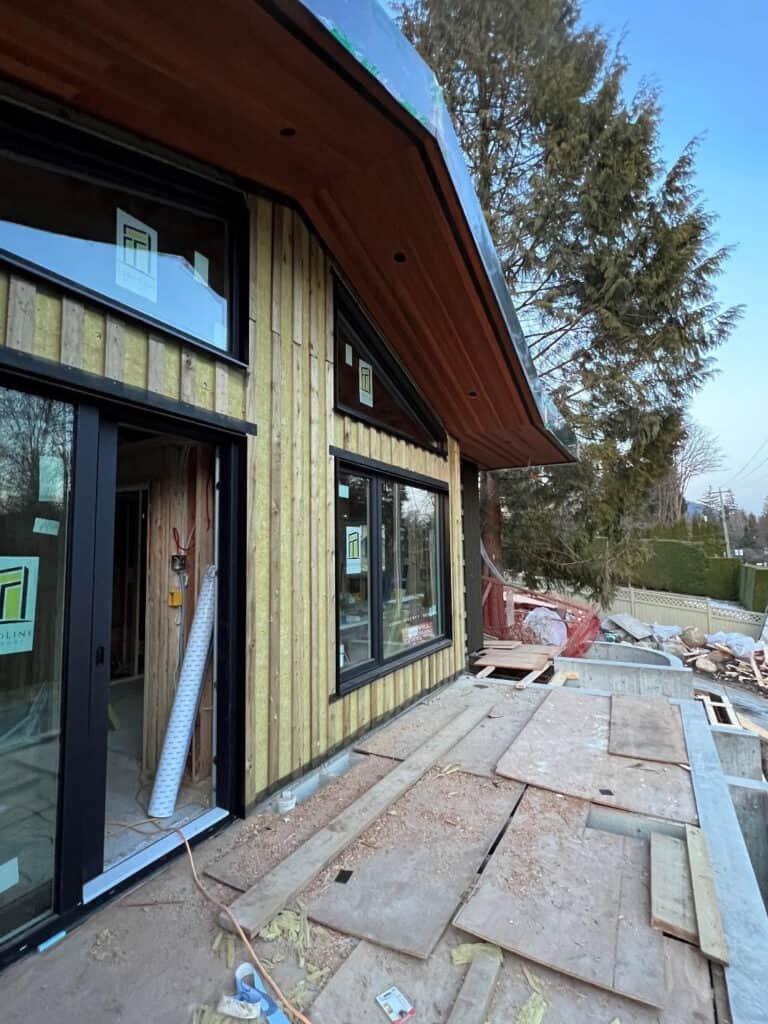
Figure 3 Exterior Insulation and Siga Majvest 500 self adhering membrane installed at our Dollarton project in North Vancouver
What role do building codes and regulations play in promoting energy-efficient homes?
Building codes and regulations often have energy efficiency requirements to ensure new constructions meet certain standards. These regulations are designed to drive the adoption of energy-efficient practices and technology.
How can builders and homeowners assess the energy efficiency of a home?
Builders and homeowners can assess the energy efficiency of a home by conducting energy audits and looking at their energy performance ratings and certifications like LEED (Leadership in Energy and Environmental Design) or Energy Star. These assessments help identify areas for improvement and guide decisions on energy-efficient upgrades.
Final Thoughts
Upgrading your home’s energy efficiency doesn’t mean skimping on your creature comforts. You can still create a comfortable living space while minimizing environmental impact.
How? By leveraging the expertise of a partner like Goldcon Construction.
Beyond our extensive knowledge of the best energy efficiency practices, we take a personalized approach to ensuring construction projects are completed within time and budget while remaining as close to your specifications as possible. Plus, we’re currently building at Step 4 and 5 of the BC code, so you can rest assured that your build will be one of the most energy-efficient on your block!
